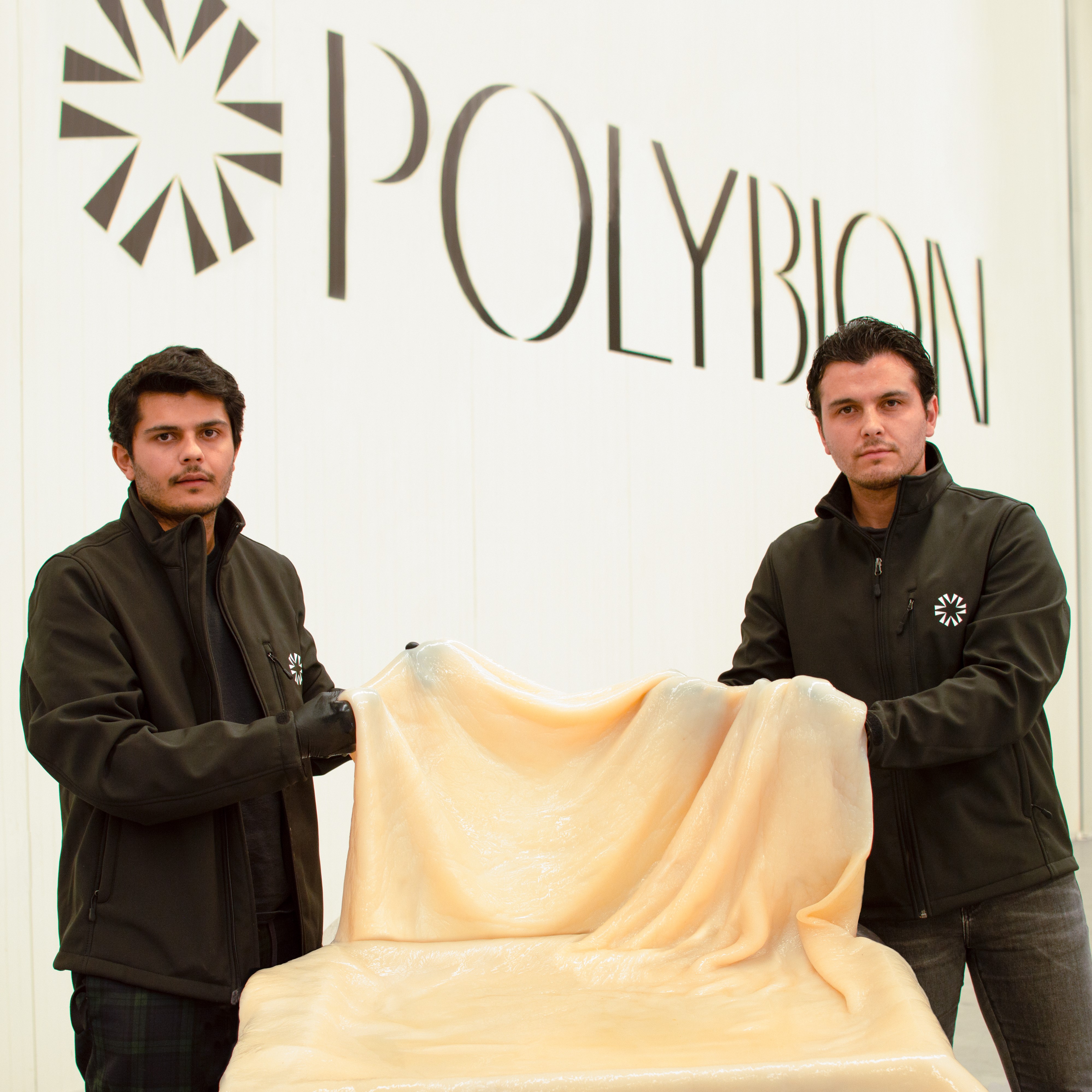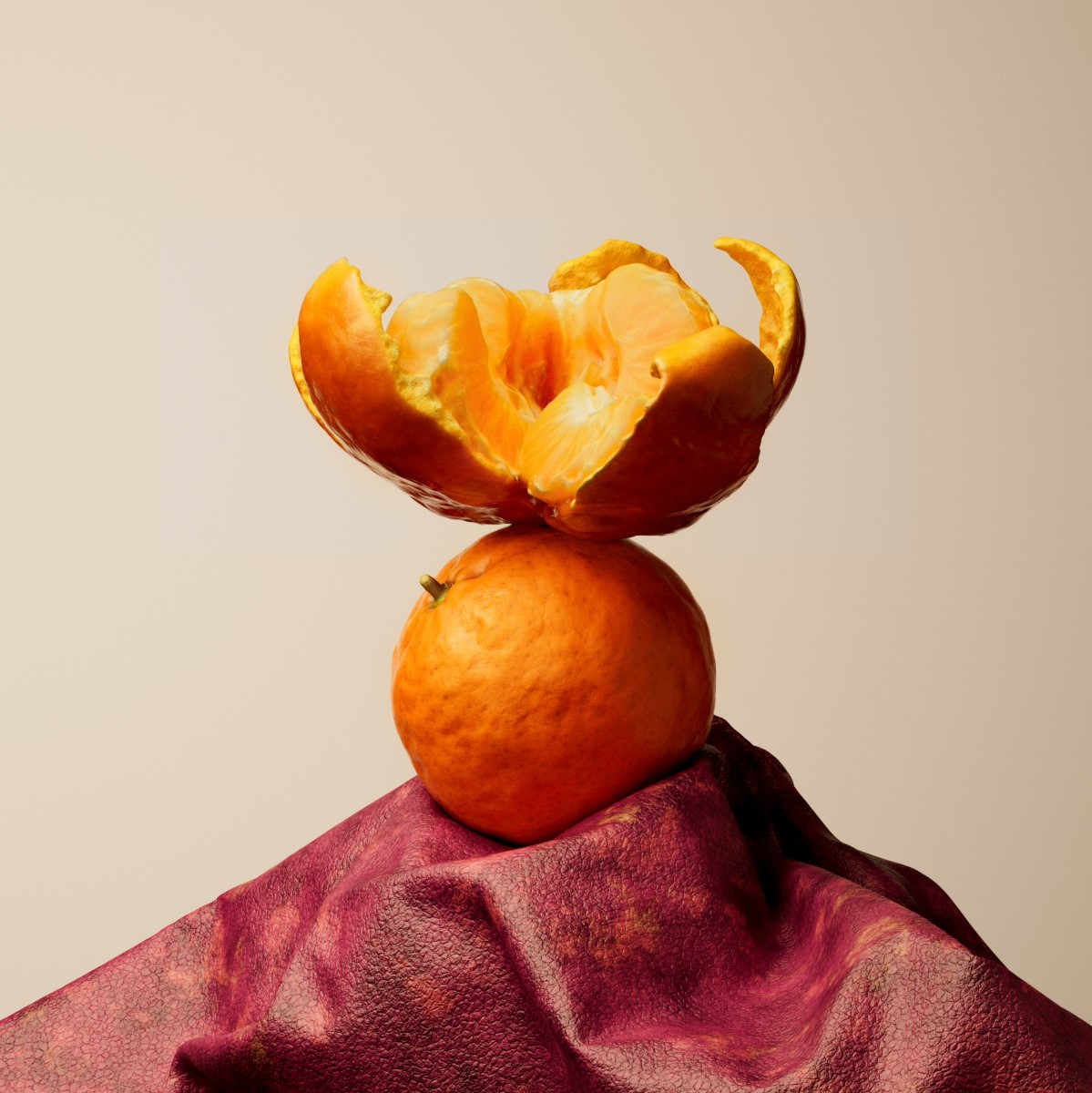How This Mexican Company Makes Sustainable Vegan Leather by Feeding Fruit Waste to Bacteria
Mexican biotechnology startup Polybion has developed and started off manufacturing of a new, superior-high-quality vegan leather that is produced using agro-industrial food squander as a raw product. The resulting biotextile, termed Celium, is designed from a person of the most ample and adaptable natural and organic compounds on Earth—cellulose—and is the initial in a series of following-era sustainably sourced and bio-assembled material options that intention to substitute classic leather.
Polybion was started in 2015 by Axel Gómez-Ortigoza, his brother Alexis, and Bárbara González Rolón. With each other, they developed the resources and technology to expand large-performance bio-assembled elements by upcycling agro-industrial food stuff waste and harnessing residing organisms this sort of as microbes.
Polybion positions by itself as a mobile agriculture firm and much more broadly defines the expression to involve cells from fungi, micro organism, or animals that eat nutrients in a sterile setting that encourages development. To create the mobile-dependent Celium, Polybion takes advantage of bacterial cells that are fed agro-industrial fruit squander to increase to produce the cellulose composition. At the time fashioned, Celium’s mobile-dependent membrane undergoes a sustainable stabilization procedure to obtain its distinctive, large-functionality properties. Polyion thinks it can come to be a new gold typical product for style, sportswear, and automotive applications.

Polybion
In accordance to Polybion, there is currently ample fruit squander for the startup to create 168 million sq. ft of Celium each year. The organization has also discovered 3 other types of community fruit squander that are equally abundant. With no hazardous chemical substances unveiled in any part of the method, and no sizeable biomass outputs between advancement cycles, Celium is as circular as it will get. Leveraging squander as uncooked product and coming up with, producing, and ending items below the exact same roof are the north stars in Polybion’s long-expression sustainability approach.
Replacing animal-derived leather-based
Right after securing a the latest $4 million Sequence A funding spherical, Polybion is making a new bacterial cellulose producing facility in Mexico—the world’s first—to scale up creation. At highest capability, Polybion’s solar-run, industrial-scale production facility will make 1.1 million square toes for each year of the company’s proprietary biotextile Celium. Polybion is also applying the new funds to boost research and improvement endeavours and deploy Celium into purchaser items. The startup expects to reach the optimum manufacturing potential by the 3rd quarter of 2023 to satisfy the present-day demand from world brand name collaborations.
“Polybion’s Celium has resonated with ahead-contemplating, world wide customer brands throughout numerous sectors,” Alexis Gómez-Ortigoza claimed in a statement. “With our expanded manufacturing capabilities, we are improving our potential to operate with some of the world’s most iconic international client makes whilst cutting down carbon emissions and displacing the animal-derived leather worth chain. Our aim is to enhance these brands’ capability to accelerate the progress of bio-assembled products, increase sustainability, and accelerate the path toward the circular overall economy.”

Polybion
Future-generation sustainable vegan elements
In the latest yrs, startups have been producing new kinds of vegan leather-based that are additional sustainable than the following, and partnering with recognized makes to provide the new elements to market. In 2019, Mexican business people Adrián López Velarde and Marte Cázarez debuted Desserto, a sustainable vegan leather alternative produced fully from the nopal (or prickly-pear) cactus.
The substance is partly biodegradable and has the complex specs demanded by the fashion, leather-based goods, home furnishings, and automotive industries. Thanks to its versatility, breathability, and toughness, the cactus leather has the skill to exchange the use of animal leather-based and synthetic resources that are not environmentally pleasant. Because its launch, the corporation has collaborated with important manufacturers such as H&M, Fossil, and Karl Lagerfeld for new vegan leather-based solution lines.
For more on sustainable vegan leather-based, examine:
Adidas Unveils Its Initial Sneaker Made from Vegan Mushroom Leather
Gucci Dropped Its Initial Vegan Leather Sneaker Line Manufactured from Wood Pulp
Dole Strikes Offer to Turn Its Pineapple Leaves into Vegan Leather-based

